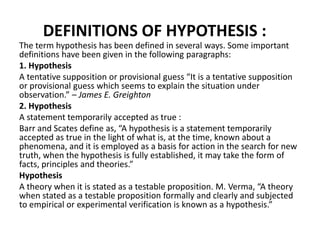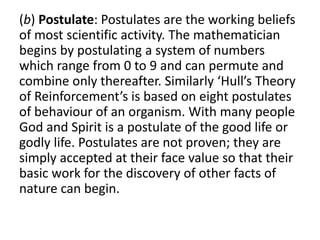This document discusses research methodology and the concept of hypotheses. It defines a hypothesis as a tentative statement about a problem's solution that can be empirically tested. The document outlines the key characteristics of hypotheses, including that they are conceptual, declarative statements that reference empirical variables and have a future orientation toward verification. Hypotheses are important as they focus research, guide the investigator, and prevent blind searches for data. Different types of hypotheses are discussed, including question, declarative statement, directional statement, and null forms.






















